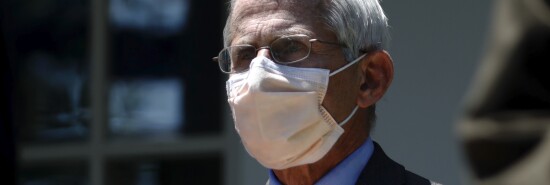
Trust the science? Anthony Fauci should have learned from Robert Oppenheimer
Timothy P. Carney
Video Embed
“Trust the science!”
For the first two years of the pandemic, this was the chorus used to shoot down any dissent. If you started to say that maybe fishing outdoors on a riverbank should be legal, you were barked at: Don’t you trust the science!
HUNTER BIDEN PLEA DEAL COLLAPSES IN COURT AS JUDGE THROWS ‘CURVEBALL’
If you suggested that it was not great to force 5-year-olds to wear masks for seven hours a day, you were told to trust the scientists. And if you ever — God forbid — questioned Anthony Fauci, you were assailed as anti-science.
https://twitter.com/FaceTheNation/status/1465003501541597191
For two years, every mother who saw her children suffering under lockdowns, every father who objected to the bureaucrats forcing his children to wear masks outdoors during summer camps, was attacked as some rube who simply didn’t believe in science.
What lay behind these “corrections” was the premise that normal folks had no standing to question scientists on their prescriptions for how we ought to live.
The movie Oppenheimer ought to eradicate that way of thinking from our minds.
“In some sort of crude sense, which no vulgarity, no humor, no overstatements can quite extinguish, the physicists have known sin,” J. Robert Oppenheimer said. “And this is a knowledge which they cannot lose.”
“I do not think our consciences should be entirely easy,” Oppenheimer said 20 years after the bomb.
Then he got a bit philosophical.
“The physicists had known sin. And I didn’t mean by that the deaths that were caused as the result of our work. I meant that we had known the sin of pride. We had turned to affect, in what proved to be a major way, the course of man’s history. We had the pride of thinking we knew what was good for man. And I do think it has left a mark on many of those who were responsibly engaged. This is not the natural business of a scientist.”
A scientist’s expertise does not include knowing what is good for man. Anthony Fauci believed his job included knowing what was good for man — and this good didn’t include family, friendship, or neighborliness.
Fauci and the lockdowners were obviously wrong. I believe Oppenheimer and the men who made the nuclear bombs harmed the world.
Humility is not a common thing these days. It’s too bad because Oppenheimer himself knew that we needed more of it.
